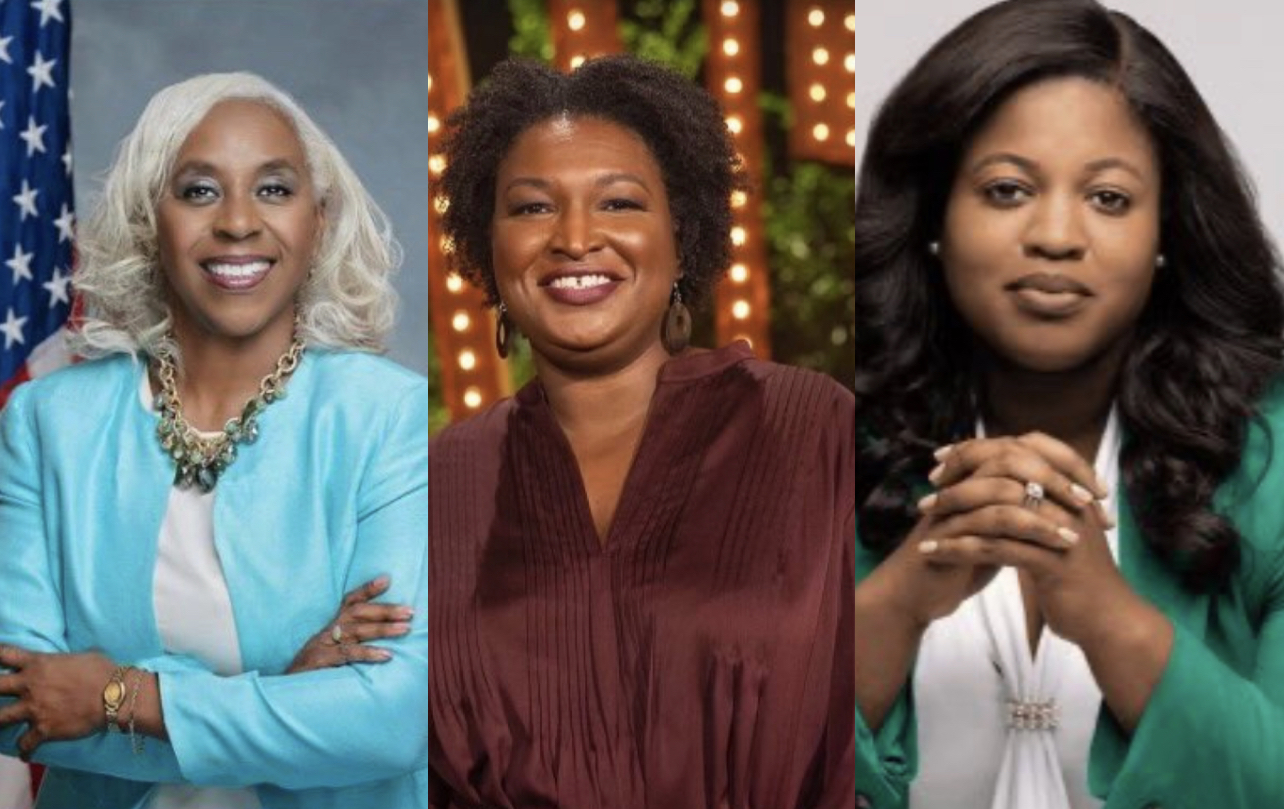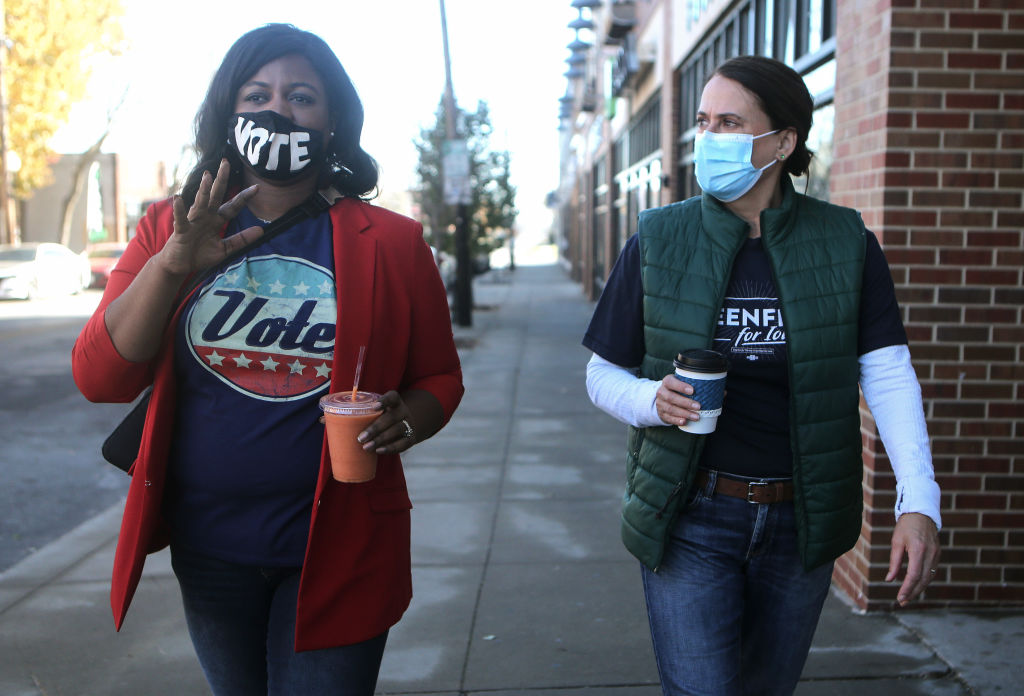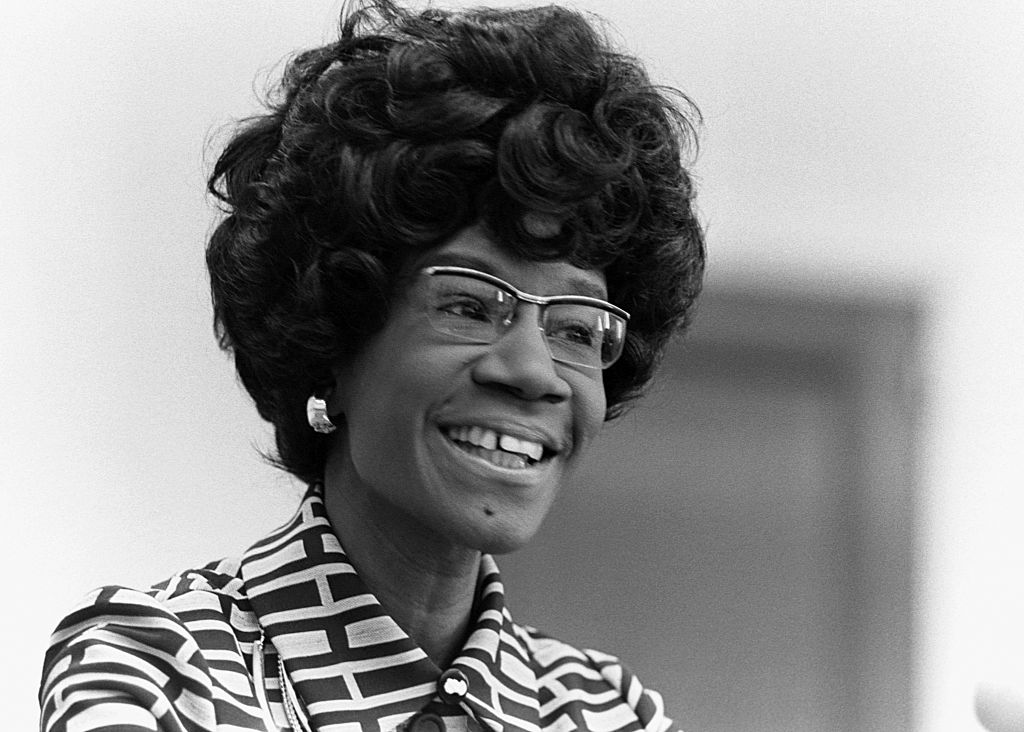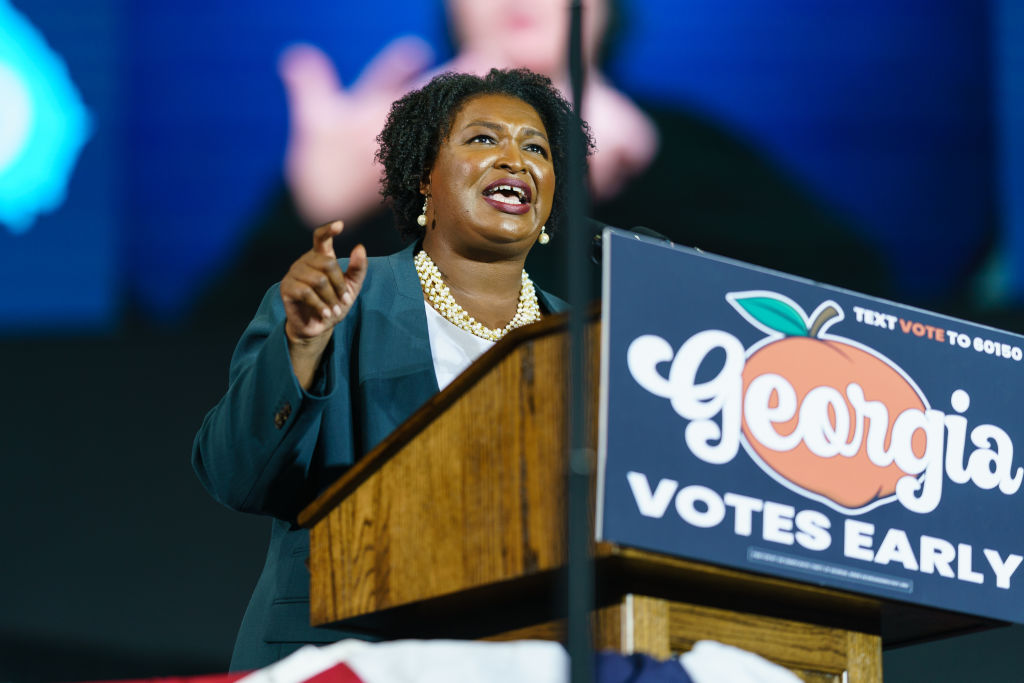
Source: Courtesy of Twitter / Twitter
When Kamala Harris reached the historic milestone of becoming the first Black female vice president, it marked a somewhat bittersweet moment; while celebrating a Black first, it also highlighted how far we have to go in terms of political leadership amongst Black women.
In a world that’s never seen a Black female governor, three are running this fall to reshape and advance U.S. politics. And If I’m honest, the one thing that could perhaps save America from itself, is to elect more Black women.
“My being a black woman is not a deficit. It is a strength. Because I could not be where I am had I not overcome so many other barriers. Which means you know I’m relentless, you know I’m persistent, and you know I’m smart.” — Stacey Abrams, 2022 Democratic candidate for Governor of Georgia.
Elijah Nouvelage
Stacey Abrams is a politician, author, voting rights activist, and lawyer from Atlanta, Georgia. Abrams served as the deputy attorney of Atlanta in 2002, the Georgia House of Representatives from 2007 to 2017, and is a founding member of Fair Fight Action— an organization addressing and fighting against voter suppression. But more importantly, Stacey Abrams is a Black woman who helped flip a deep-red Georgia blue in 2020.
In 2017, Stacey Abrams announced her run for Governor in the 2018 Georgia gubernatorial election and won the Democratic primary in May of 2018— marking Abrams as the first Black woman Governor nominee in the United States. Abrams would lose the election to now Governor Brian Kemp but refused to concede, citing that while she was ending her campaign that she would not concede an election that was “stolen” and “rigged” by voter suppression.
However, Abrams’ loss did not stifle her political career. In February 2019, Abrams made another historical milestone as the first Black woman to deliver a State of the Union address response for the Democratic party.
“While I acknowledged the results of the 2018 election here in Georgia — I did not and we cannot accept efforts to undermine our right to vote. That’s why I started a nonpartisan organization called Fair Fight to advocate for voting rights.” — Excerpt from Abrams’ response to President Trump’s 2019 State of the Union.
Abrams’ voter suppression claims were more than mere accusations against her political opponent, but a calling to address a real threat to our democracy.
After immense mismanagement in the 2018 election, in her campaign-ending speech, Abrams announced Fair Fight Action; an initiative to help address voter suppression in the United States. The organization is a call to more equitable voter registrations and elections while advocating for more voter turnout and that votes are properly counted.
Some achievements of Fair Fight Action included securing voter protection teams in 20 states, helping to register over 800,000 new voters in Georgia, and addressing strict voter laws and how they disproportionately impact minorities and low-income voters in America.
Abrams’ initiatives helped bring national attention to Georgia and the 2020 presidential election. Georgia was projected to be a swing state; which was to be determined by the outcome of the election.
When Joe Biden won a deep-red Georgia by a razor-thin lead over President Trump, it was clear that Abrams played a significant role in voter turnout, specifically voters from marginalized communities who were previously denied access to voting. Abrams’ self-determining choice to step into higher political spaces to affect change has perhaps inspired more Black women like Deidre DeJear and Yolanda Flowers to do the same.
In December 2021, Abrams announced her second run for Georgia governor. So far, Abrams has emphasized her vision for legal access to abortion and stricter federal laws on gun control, while still fighting for equitable voting rights in Georgia and beyond.
“I support better health care including the expansion of Medicaid. I believe in a woman’s right to choose and better reproductive care in the state. I am for reforming the criminal justice system that has hurt too many young Black people. Overall, I want to make Alabama a better place for all the people who live here.” — Yolanda Flowers, 2022 Democratic candidate for Governor of Alabama.
Nearly 300 miles from Georgia also lies a deep-red state, known for its low cost of living, love of food and sports, and Southern hospitality. Yet, Alabama is also known for its painful civil rights history, high-ranking health risks, and low economic ranking struggles; — concerns that Democratic candidate, Yolanda Flowers wants to change in her hopeful position as Alabama’s Governor.
Flowers has a 20-year thriving career in academia, in which she worked as a reading instructor helping at-risk students. This experience inspired Flowers to further her education where she received her A.A. in Speech, B.A. in Audiology, and her Master’s in Rehabilitation Counseling. Flowers used these degrees to work as a Pathologist and Counselor with more at-risk students and adults to help them transition into the world of employment.
Flowers announced her run for Governor in late December 2021 and won the Democratic nomination against Senator Malika Sanders-Fortier this past May. Flowers promises a reconstruction for all Alabamians; — one that will improve the economy, healthcare, and the criminal justice system.
Such plans include implementing a justice league team of lawyers, law students, and judges to create criminal justice reform approaches in Alabama, expanding Medicaid coverage for older adults and those unable to afford health care, and funding more small businesses.
Flowers has worn faith on her sleeve during her campaign— accrediting her vision and advocacy for a better Alabama to her Christian beliefs.
“…while I’m traveling through this land called Alabama, I will fight, stand, speak, show forth HIS praises, and run the gubernatorial race with hope, courage, and equity. This blessed hope is fortified by knowing that with every passing day, we are one day closer to Jesus’ return indeed.”
If elected, Flowers’ position as Governor would flip a deep-red Alabama after an already historical milestone as the first Black woman from either major party to become the official nominee for Governor in Alabama.
“Our children are worth fighting for the best education system possible; we can put Iowa schools back on top by working with parents, teachers, and our local governments to solve our challenges and invest in our future.”
“Small businesses, the backbone of our economy, and small towns are worth the investment and support; as I have done throughout my career, I will be a champion for their needs to get them resources to recover from the pandemic and continue to grow our economy.” — Deidre DeJear, 2022 Democratic candidate for Governor of Iowa.
And some 900 miles from Alabama is a state with a long-standing history of high-quality education, low crime rates, and endless economic opportunities. However, in the past year, Iowa’s education rankings have dropped from 1st in the nation to the 20th, the loss of jobs in rural and urban communities led to worker shortages, and over 300 people were wounded or killed in Iowa by guns in the last two years.
And where such subject matters are the bedrock of Iowa communities, Democratic candidate, Deidre Dejear holds a vision as Governor to provide more pathways to a safer, limitless future.

Source: Mario Tama / Getty
Born in Jackson, Mississippi, Deidre DeJear moved to Iowa to attend Drake University where she received a B.A. in Journalism with a concentration in Broadcast News and Politics. While DeJear found a home in Iowa after graduation, she also saw a growing need for small businesses and their access to economic opportunities.
As a result, and in the midst of the Great Recession, DeJear founded Caleo Enterprises, an organization that provides entrepreneurs with affordable marketing and business strategies in Iowa. As of 2022, DeJear says she is proud to have helped over 600 small businesses across Iowa.
“While I was not born in Iowa, I started my business here, met my husband here, and found my home here. I was introduced to a community who took care of people, who wrapped their arms around me, and created pathways of opportunity that I have been paying forward ever since. There is no other place I could have done all of this.”
In August 2021, DeJear announced her run for Iowa Governor, promising that she is ready to “do the work” that Iowans deserve. In her campaign kick-off, DeJear cited her milestones, which included legalizing same-sex marriage in Iowa, desegregating Iowa’s schools, and assisting VP Harris as Iowa’s campaign chair during the 2020 presidential caucuses.
DeJear has also debated her plans to fully fund Iowa’s education system back to the forefront, raise the minimum wage in Iowa to a sustainable wage, and implement a bipartisan red flag law to allow police to petition the court for the removal of firearms from those who may present a danger to themselves or others. If elected, DeJear would be the state’s first Black female Governor and first Black statewide officeholder.
“I ran for the presidency, despite hopeless odds, to demonstrate the sheer will and refusal to accept the status quo; — to give a voice to the people the major candidates were ignoring. What I hope most is that now there will be others who will feel themselves as capable of running for high political office as any wealthy, good-looking white male.” — Shirley Chisholm, First Black congresswoman, 1972
In 1968, an unbought and unbossed Shirley Chisholm stepped into a high political place, alongside faces that did not represent or favor her advocacy for women and minorities. Such advocacy has opened more doors for Black women to run and win elections on local and now state levels.

Source: Historical / Getty
However, over 50 years after Chisholm was elected to Congress and subsequent run for President in 1972, Black women are still making significant, but challenging political strides to advance America.
A recent research study from The Brookings Institution and the Higher Heights Leadership Fund found that while Black women makeup over 6 percent of the country’s population and while there are nearly 300 Black female incumbents, research reveals little to no Black female leadership in high political spaces such as senators, governors, secretaries of state, etc.
Though Black women have historically advocated and been involved in socio-political issues as early as the American Civil war era, Black women are undoubtedly underrepresented in high political positions.
Even before such public offices existed, Black female abolitionists such as Harriet Tubman, Maria Stewart, and Sojourner Truth politically advocated for rights by holding leadership positions and implementing community-based programs, all the while fighting against racism and misogyny— further asserting that the rights of today we hold were largely built off the leadership of a Black woman.
Moreover, according to a report from the Higher Heights Center for American Women in Politics, Black women are less likely to be encouraged — rather discouraged — from running for higher political offices than their white counterparts, and are less likely to receive the early financial support and endorsements necessary to secure a successful campaign.
Recognizing the viability of Black women in political spaces, it is imperative to expand the higher political opportunities and equitable elections we deserve; not to push personal agendas or to push past our counterparts, but simply because we can no longer afford to be pushed back.
Three Black women are chasing a new era of political history. Abrams, Flowers, and DeJear have created an epitome effect that will inspire the next generation of Black women and girls who are considering high political spaces previously conceived to be out of reach.
In a world that’s politically pushed us down, over, and away, perhaps the greatest political play will be to see a Black woman pushed forward.
RELATED CONTENT: SUNDAY ‘NOIRE: 4 Times Judge Ketanji Brown Jackson Shut Down Republican Trolls During Her Confirmation










